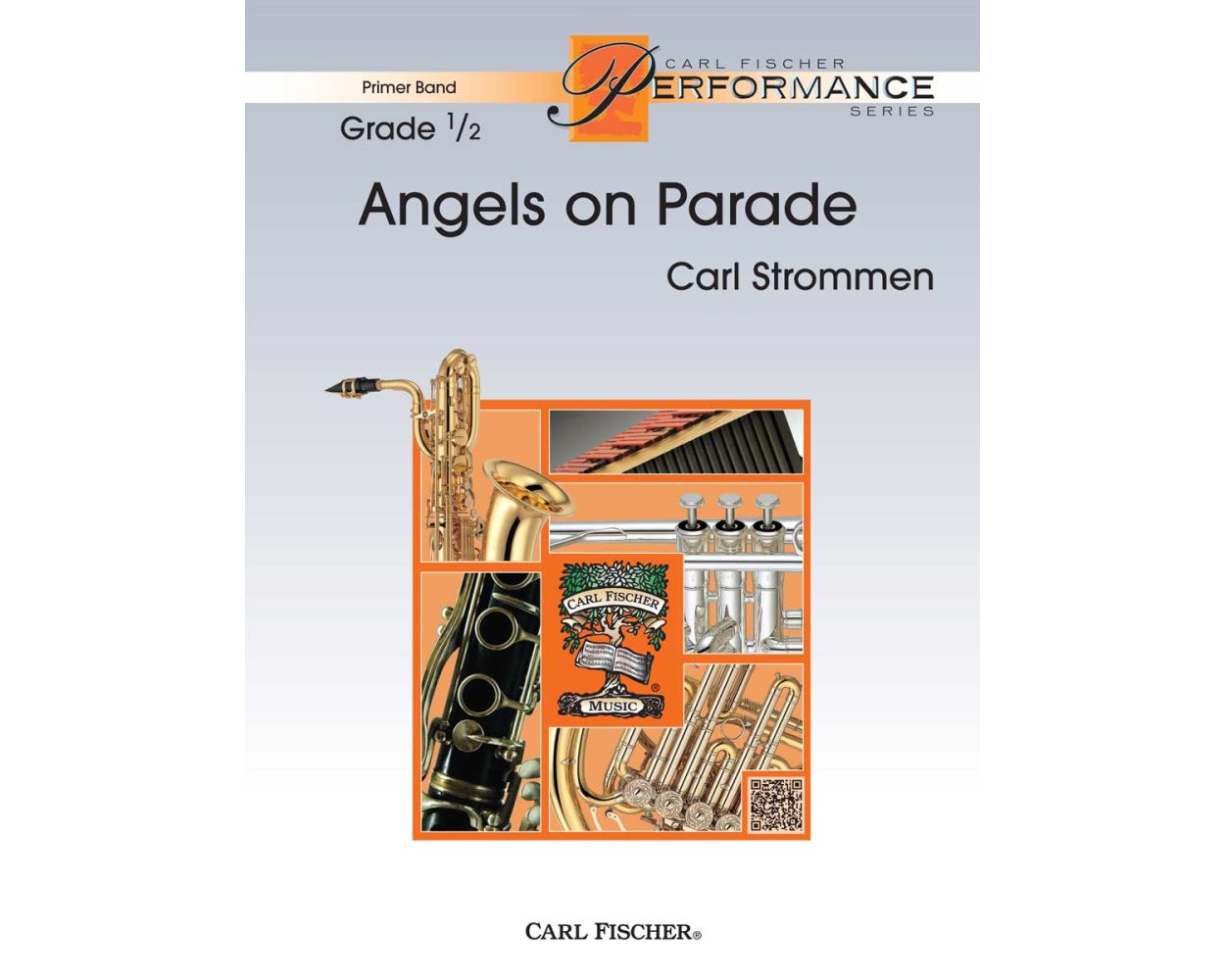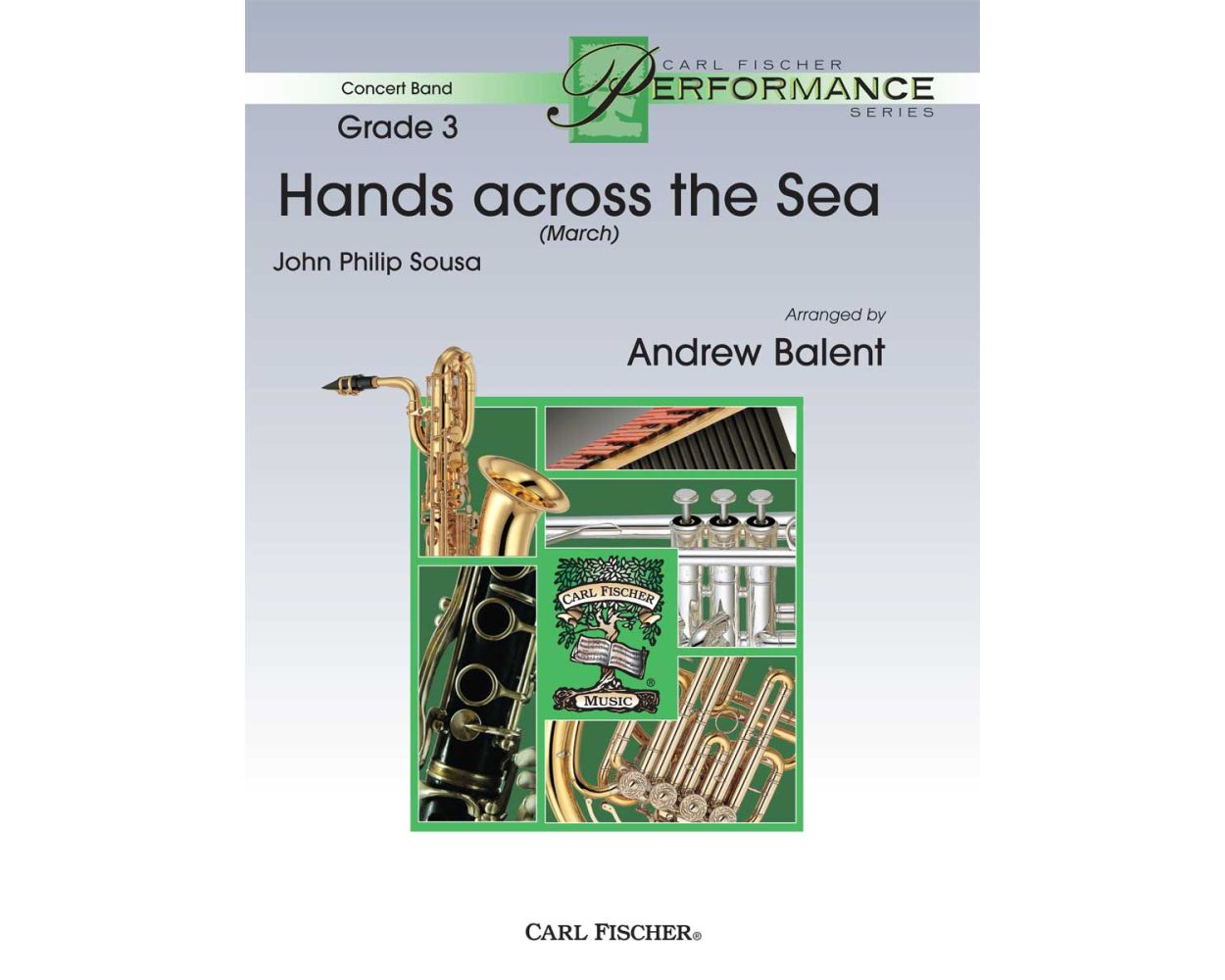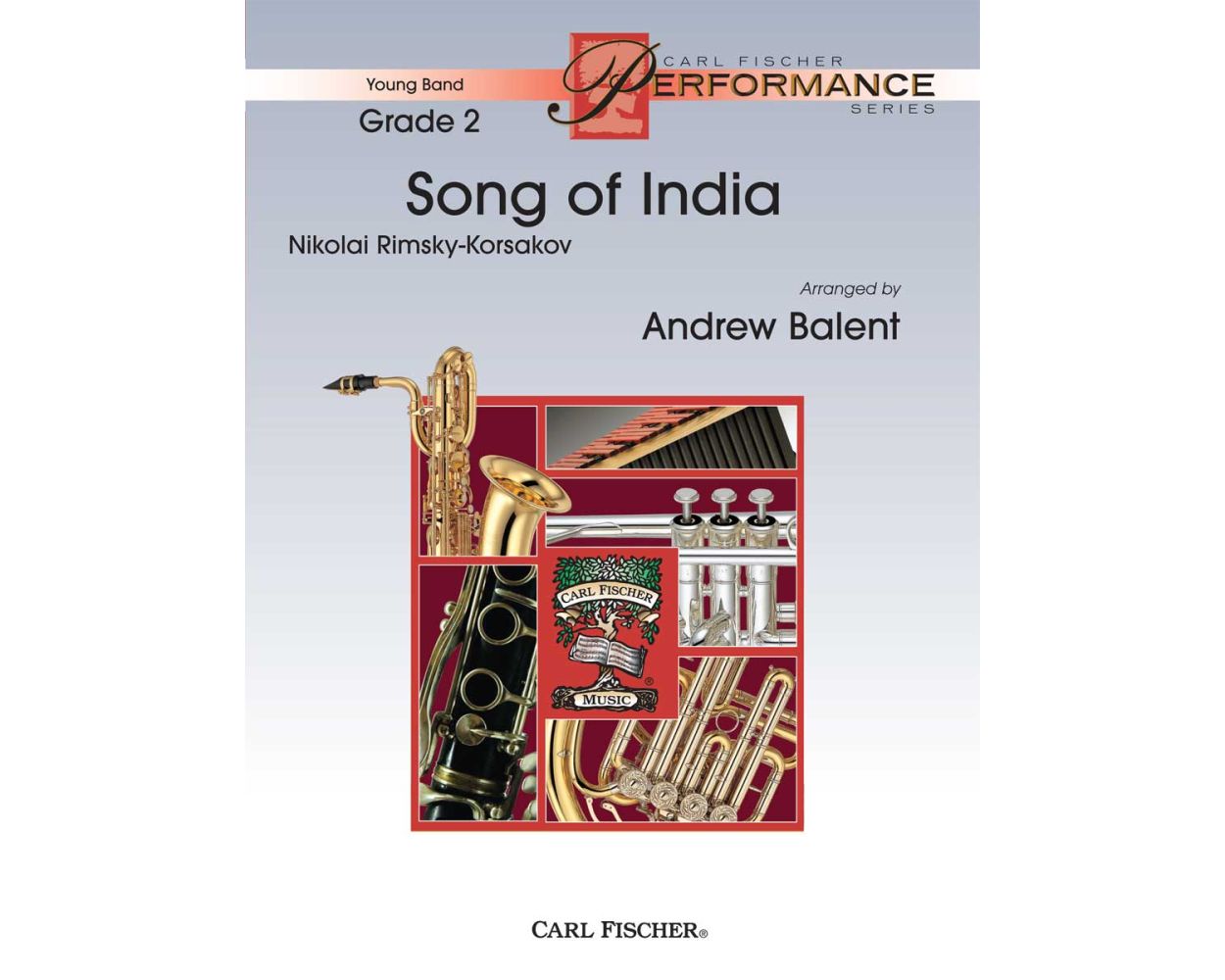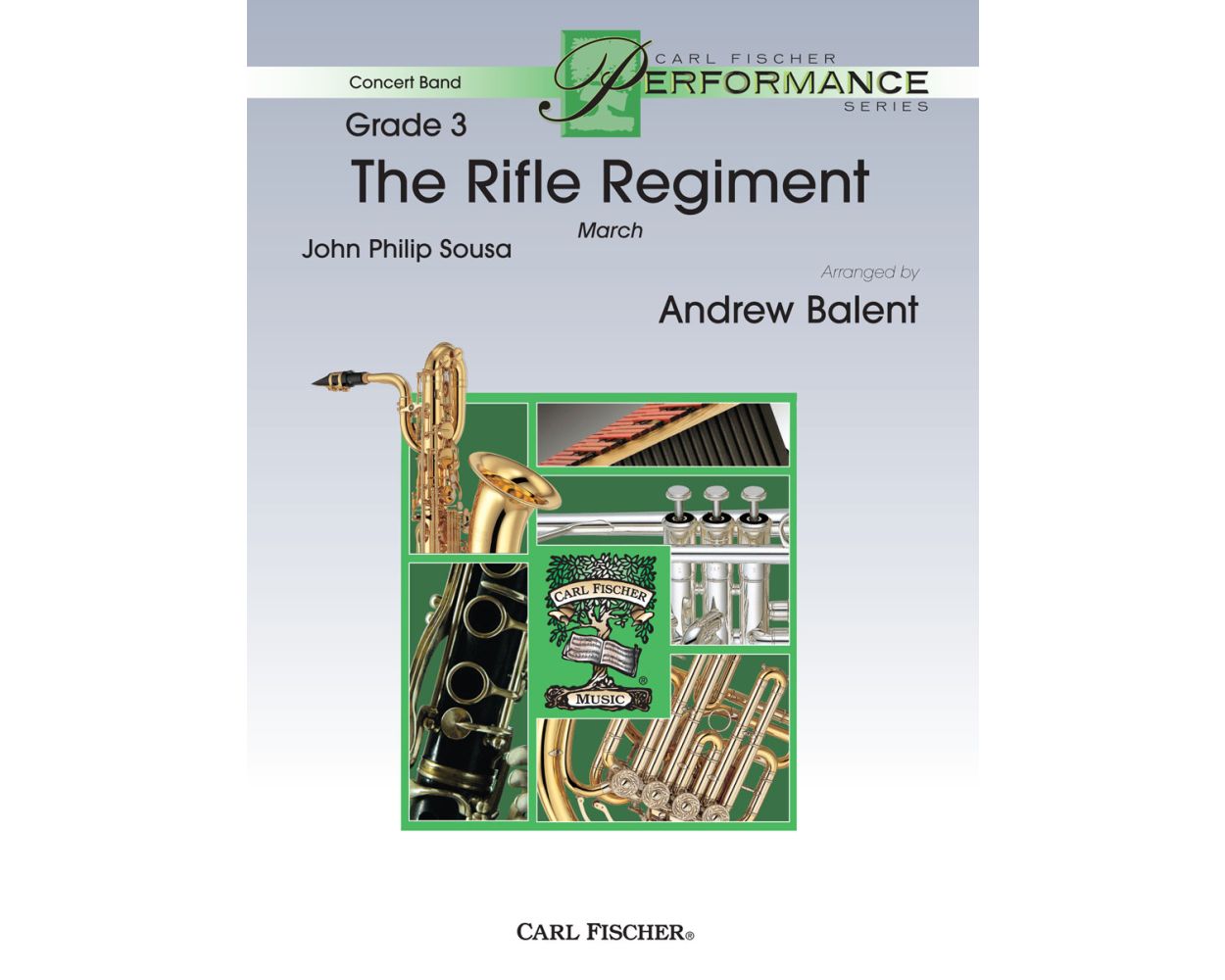Results
-
 £57.00
£57.00Whitewater Run
This driving rhythmic piece is written to depict an exhilarating run down a whitewater river. Composer Ed Kiefer draws on his years of experience as a band director to provide a perfect choice for younger bands with small forces in the lower voices as those sections are mostly scored in unison. A welcome addition to the repertoire for young band festival performances.
Estimated dispatch 12-14 working days
-
 £38.00
£38.00Angels on Parade
For very beginning students, Carl Strommen gives us a new arrangement of a popular Christmas carol in march style, making it sound as if angels are marching down the street in a parade. This well-scored arrangement will play very easily for young students while sounding full and strong Take a serious look at this for your next holiday concert.
Estimated dispatch 12-14 working days
-
 £72.00
£72.00Hands Across The Sea
Andrew Balent arranging John Philip Sousa is a winning combination in itself, and this popular march has been scaled down sensitively and carefully for the younger band. Inspired by the friendship between the United States and their allies overseas, Sousa composed this march after hearing the phrase, "A sudden thought strikes me; let us swear eternal friendship." The touching patriotism and bold happiness of this work will make your group shine.
Estimated dispatch 12-14 working days
-
 £49.00
£49.00Song of India - Nikolai Rimsky-Korsakov
This sultry classical favorite from Rimsky-Korsakov is faithfully arranged for young bands by Andrew Balent. Andy has a knack for retaining the essence of standard classical repertoire, while toning the technical difficulties down to the students' ability levels. Paying close attention to dynamic changes and ensemble balance will make this a winner in contest and festival settings.
Estimated dispatch 12-14 working days
-
 £65.00
£65.00Rifle Regiment
When you hear the names John Phillip Sousa and Andrew Balent, you know they have to do with something great! Balent takes one of Sousa's most popular marches and works it down to keep some of the technical demands in check for most younger bands. Sousa wrote this march in 1886 to commemorate The Third Infantry, known as "The Old Guard."
Estimated dispatch 12-14 working days
-
 £211.80
£211.80Karneval i Paris - Johan S. Svendsen
Johan Svendsen (1840-1911) composed "Carnival in Paris" in 1872, inspired by the energy and vibrancy of the Parisian carnival celebrations. The piece showcases a variety of moods and orchestral colours, ranging from jubilant and playful sections to more lyrical and elegant passages. It is a lively and colourful work that reflects Svendsen's skill in orchestration and his ability to capture vivid, festive atmospheres in music. In "Carnival in Paris", his Nordic musical roots meet the cosmopolitan influences he encountered while living and working in major European cities. The work has become one of Svendsen's most popular and is frequently performed in concert halls and festivals. About My Transcriptions for Wind Bands Ever since I started playing the clarinet at 8 or 9 years old in the school band "Blveisene" in my hometown of Gjvik, playing transcriptions of orchestral music has been a natural part of the repertoire. In regional bands, Norway's National Youth Band, and during my 10 years in a Military band, I played many such transcriptions. These transcriptions often included handwritten parts, masterfully crafted by colleagues in a time when music notation software didn't exist. Similarly, the scores were often incomplete, typically featuring just a solo clarinet part and condensed score in Bb. The transcriptions also contained parts for instruments like the Eb cornet and multiple tenor horns, but no saxophones, which made them less suitable for modern wind bands. The rise of many skilled Concert Bands and the increasing demands for scores and accessibility made me realize that someone needed to preserve this tradition. The reason I've transcribed these works is to ensure that you can play or conduct a repertoire that I believe has a rightful place in Norwegian Wind Band tradition. These transcriptions are my contribution to preserving some of the unique works in Norwegian music literature. Creating a transcription is a complex task, and I believe the score of "Carnival in Paris" is one of the most intricate I've undertaken. The first part of the process involves entering the entire orchestral score into music notation software. This is time-consuming and requires meticulous work. The next step is to check several editions to see if there are any discrepancies. Mistakes are often found in orchestral material, which can lead to further errors in the transcription. After that, I listen to many different recordings while following along with the score, paying attention to how different conductors emphasize balance and timbre. Gradually, I begin to note down passages I believe will work well for wind bands. One particular challenge in this piece is that the woodwinds and strings operate in the same register. In the original, the tonal difference between the strings and winds helps to clarify the individual musical lines. In the transcription, I've tried to address this by separating the lines, for example through octave adjustments, and highlighting them without compromising other aspects. I've also used some mallet percussion to broaden the tonal palette. There are countless decisions to be made to create a product that will hopefully allow future generations of wind band musicians to play this repertoire. - Stig Nordhagen -
Estimated dispatch 7-14 working days
-
 £60.50
£60.50Breakneck! - Tyler Arcari
Imagine flying down the streets at breakneck speed! This high-wire work for developing bands is an intense ride from start to finish! Easy 8th-note patterns create an anchor-point for this work while a clever use of percussion equipment, upper brass "honks", and cool harmonic tension transport you behind directly behind the wheel!
Estimated dispatch 7-14 working days
-
 £60.99
£60.99From the Southern Mountains
A setting of two traditional folk songs, Lonesome Valley and Down to the River to Pray, FROM THE SOUTHERN MOUNTAINS is a lyric and euphonious introduction to the American folk song tradition. Expertly scored, the work will pose no onerous problem for you to solve.
Estimated dispatch 7-14 working days
-
 £118.99
£118.99Princess Mononoke, Medley - Joe Hisaishi
Series: New Sounds in Brass (NSB); Duration: approx.8'50"; Composed by Joe Hisaishi; Arranged by Takashi Hoshide. Arranger Takashi Hoshide says, "I have selected beautiful melodies from the soundtrack of 'Princess Mononoke' (1997, directed by Hayao Miyazaki) and arranged them into a medley. What can be said about these songs as a whole is that they combine a grand continental scale with the delicacy that reflects Japanese emotions. Since there are no upbeat songs in this selection, I had to work hard on the arrangement, but this allowed for creating contrasts and transitions between each scene in the performance. 'Ashitaka Sekki (English title: The Legend of Ashitaka)' - 'Sekki' means a story that is not recorded but passed down orally. In this anime, this can be considered a sub-main theme. The song starts with a feeling that the story is about to begin and, once the theme kicks in, aim for a grand performance to convey its scale. 'Encounter' - This is the music that plays during the scene where the protagonist Ashitaka meets San. Interestingly, the motif of the main theme 'Princess Mononoke' is used in this melody. Here, let's pursue the shifts in the timbre of individual phrases, creating a beautiful and aesthetic soundscape. 'Princess Mononoke' - This is the main title of the anime. The melody line is carried by horns and trumpets."
Estimated dispatch 7-14 working days
-
 £102.99
£102.99M...NESKIN Greatest Hits
Mneskin is an Italian rock band that first set foot on the international stage in 2021, when it won the 65th Eurovision Song Contest with Zitti e buoni. 2021 was an excellent year for the group in more ways than one, since they were also declared best rock band at the MTV European Music Awards. More successes followed: their cover of the Four Seasons song Beggin' became a worldwide hit and even reached the American Billboard Hot 100, as well as the global Spotify hit list. The band's name was definitively established with songs like I Wanna Be Your Slave, The Loneliest and Supermodel. Markus Schenk has brought together all of these hits in a fantastic pop-rock medley for concert band. Sturdy music that is unsuitable for softies, but it will certainly go down well with the audience!
Estimated dispatch 7-14 working days
